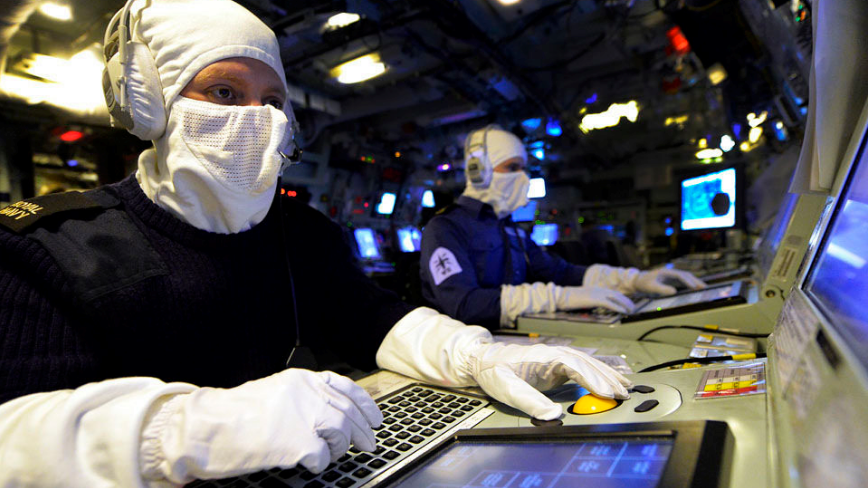Royal Navy Plans First-Ever "Cyber War Games"

The UK Royal Navy is planning a series of cyber war games as part of Operation Joint Warrior, a massive NATO joint drill off of Scotland that will begin this weekend. "Information Warrior 17" will be the service's first ever large-scale cyber exercise, and it will mark the debut of an artificial intelligence "ship's mind" system that may one day help to automate ships' defensive and offensive capabilities.
"We must use information as a weapon in itself, to deliver effects with greater precision in both time and space; protect our information effectively; better integrate a comprehensive approach to planning; and exploit technology," said Admiral Ben Key, fleet commander, in announcing the exercise.
The Royal Navy says that the aim of the new AI system – called STARTLE – is to facilitate fast, automated decision-making for warships and submarines, speeding up their response times and reducing operating costs. More narrowly, the UK's Defence Science and Technology Laboratory says that in its current form, STARTLE helps air defense operators to rapidly analyze air traffic and recognize threats.
The UK Ministry of Defense says that Information Warrior will serve as a follow-on to last year's Unmanned Warrior exercise, which brought together dozens of remotely operated and autonomous drones for joint trials. The success of that exercise rested in no small part on an unmanned system command and control suite called the Open Architecture Combat System (OACS), developed by defense contractor QinetiQ, that allowed operators to control multiple drones from multiple suppliers through the same console. DSTL says that OACS will also enable the integration of other new applications into ship's combat systems, including the STARTLE artificial intelligence program.
In addition to AI systems, Information Warrior will also feature exercises to evaluate Royal Navy vessels' abilities to resist cyber attacks; tests of a new "Big Data" intelligence analysis tool that aggregates multiple data streams; and a series of GPS denial operations in limited areas, as detailed in a comprehensive notice to mariners.
